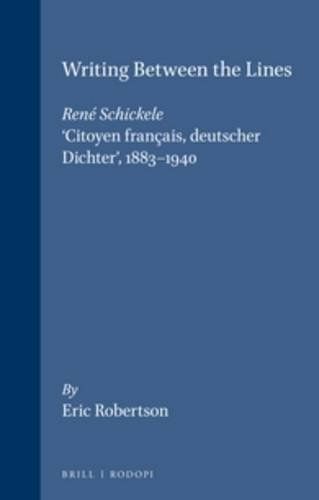
Writing Between the Lines René Schickele, 'Citoyen Franc̜ais, Deutscher Dichter' (1883-1940)
This book is the first major study in English of René Schickele's work. Hailed by his contemporaries as one of the foremost German-language novelists of the inter-war period, and celebrated for his Expressionist poetry and his controversial First World War drama Hans im Schnakenloch, Schickele also produced socio-critical essays and pioneering editorial work for the pacifist journal Die Weißen Blätter. From his literary débuts in fin-de-siècle Strasbourg to the French and German prose fiction of his anti-Nazi exile, Schickele's work reflects his bilingual, bicultural upbringing: his vision of Alsace as a symbolic broker of Franco-German peace finds its clearest expression in the trilogy of novels Das Erbe am Rhein. Schickele remains a paradoxical figure, in his own words, a 'citoyen français und deutscher Dichter' (French citizen and German poet). Through readings of all the major texts, Eric Robertson's study situates Schickele's work within its socio-political and historical context. Particular attention is paid to the personal and political implications of his adoption of German as literary idiom and his reversion to the French mother tongue during the 1930s; Schickele's copious diaries and his correspondence with fellow writers including Thomas Mann, Heinrich Mann and Stefan Zweig are shown to be especially revealing. Schickele's oeuvre holds a unique and hitherto underrated place in the European writing of his era.